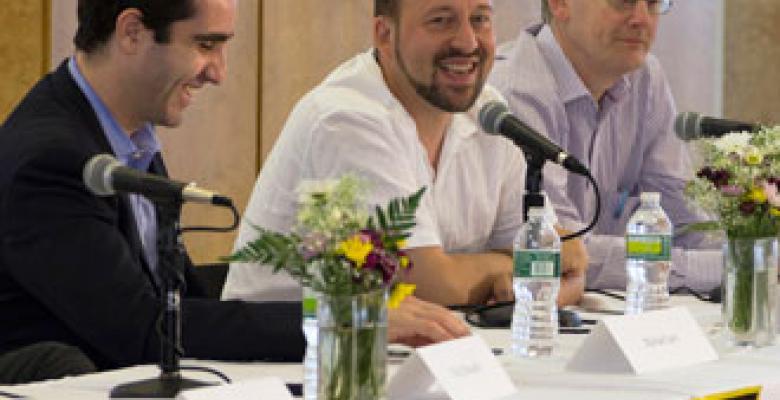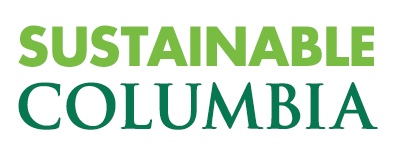Hertog Program Delves Into History of Climate Change

As the average local temperature continues to rise, climate change is a major topic on campus this summer. It is the focus of the Hertog Global Strategy Initiative, an annual interdisciplinary program that uses historical analysis to examine problems in world politics.
“This year’s Hertog topic is so timely,” said Jason Bordoff, director of Columbia’s new Center on Global Energy Policy. “It provides an opportunity to study and discuss the key defining challenge for the next generation—how to provide affordable, reliable, secure energy sources to billions of people without further harming the planet.”
This year’s series is titled “Endless Summer: Climate Change and Global Governance.” It includes a seminar co-taught by Columbia History Professor Matthew Connelly and historian James Fleming, director of the Science, Technology and Society Program at Colby College. Another component is the weekly Thursday lecture series featuring authors and climate activists Bill McKibben and Eric Pooley. There are elective classes covering U.S. foreign relations, the global history of oil and water, and American environmental history. Rounding out the program is a workshop with prominent scientists and scholars, who help students pinpoint worthy avenues for future research.
Sixteen graduate and undergraduate students from 14 different universities are attending this summer’s program, which runs through mid-August. It was begun by philanthropist Roger Hertog, vice chair emeritus of Alliance-Bernstein L.P., whose Hertog Foundation funds the initiative.
At a roundtable in June, Columbia climate scientists from across the University weighed in on the scientific dimensions of the problem.
Gavin Schmidt, a climate scientist at NASA’s Goddard Institute for Space Studies, which is affiliated with Columbia, discussed how the scope of climate models has grown. “Now we can include atmospheric chemistry, ozone depletion, aerosol and air pollution effects ... and can provide more information to policy makers,” he said.
Deborah Coen, associate professor of history at Barnard, added, “I think that we began writing the history of meteorology and climatology in a rather narrow sense—the history of the science of global warming, what scientists did in their observatories, in their calculations—and now we’ve really expanded to think about the science of climate as part of culture, from the ancient world to today, across the globe.”
Connelly said that participating faculty and students hold a range of views on the history and significance of climate change, befitting the tradition of wide-ranging and rigorous academic inquiry. “History trains students to critically analyze research and understand the complex interrelationship between science and society,” he said.
The Hertog program began in late May with a seminar on the history of climate change research with Geoffrey Parker, a history professor at Ohio State University. His new book, Global Crisis: War, Climate, and Catastrophe in the Seventeenth Century, is about the “Little Ice Age,” which started in the 14th century and produced extremely cold conditions around the northern Atlantic basin in about 1650. Parker links deteriorating climate conditions to political, economic and social upheaval around the world of that time, a century characterized by revolutions, droughts, famines, invasions, wars and regicides.
Many people consider climate change to be a recent issue, but Mike Hulme, a professor of climate change at the University of East Anglia, said the thinking that humans might be altering climate on a planetary scale goes back nearly 200 years. In the 1820s, for example, French philosopher Charles Fourier suggested that human forest clearance was having a planetary-scale effect on climate. Swedish scientist Svante Arrhenius published a paper in 1896 that calculated how burning coal contributed to rising carbon dioxide levels and could change the earth’s temperature. And of course, it was Columbia geochemist Wallace S. Broecker, the Newberry Professor of Geology in the Department of Earth and Environmental Sciences, who first coined the phrase “global warming” in a 1975 scientific paper.
Reflecting on this summer’s topic, Connelly said, “History can help us anticipate how societies will adapt or fail to adapt to future climate change.”
Fleming reinforced the idea that the past matters, stating, “If you don’t study history everything appears ‘unprecedented.’”
